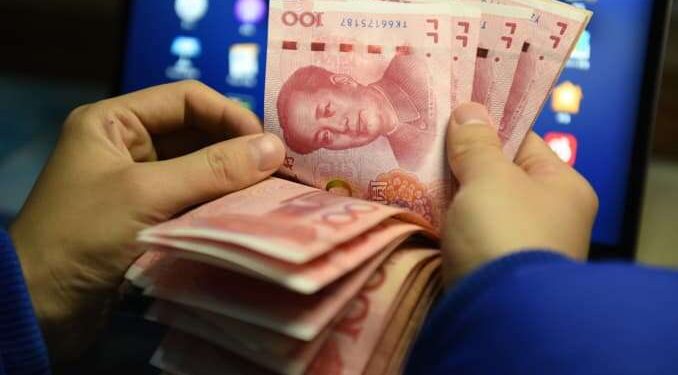A series of high-profile defaults involving state-owned companies in China — normally a safe pick for investors — have jolted the credit market and rattled investors, leading to last week’s bond market selloff.
As the bleeding continues pointing to signs of more bond defaults ahead, observers are debating the questions of why more state-owned enterprises (SOEs) are being left in the cold this time compared to the past two decades and what segments of the market, if any, will the government choose to support.
State-owned miner Yongcheng Coal and Electricity defaulted on a 1 billion yuan ($151.9million) bond last week, triggering a broadened state investigation into three underwriting banks suspected of misconduct.
Other high-profile debt defaults followed suit this week, including government-backed chipmaker Tsinghua Unigroup, which missed payment after failing to extend its deadline for repayment, and another default by state-owned Huachen Automotive Group — a Chinese joint venture partner of BMW.
Last month, one of China’s largest property developers China Evergrande also came under the spotlight for reportedly having cash crunch issues.
“The [Yongcheng] default triggered investor concerns about the entire corporate bond market, because it breaks the long-held assumption about an implicit government guarantee for SOE bonds,” ANZ Research’s China Markets Economist Zhaopeng Xing wrote in a note on Friday.
The first-time default rate for SOEs are well below 1% currently, as compared to the 9% default rate by private enterprises, according to ANZ’s data.
Defaults by government-supported firms in China were rare before recent times. Late last December, the case of a dollar-bond default by commodity trader Tewoo Group was the first in two decades.
These defaults are coming even as many asset managers, bullish on Chinese debt, have been pushing calls on investments into Chinese bonds this year.
They offer a very attractive proposition for investors with their yields — far higher than U.S. or European yields — in a world where it’s increasingly hard to come by.
China’s onshore bond market is worth $13 trillion, the world’s second largest.
So far this year, investors have lapped them up. Foreign inflows into onshore Chinese bonds via funds shot up to a year-high of $21.43 billion in March, compared to $9.5 billion at the end of last year, according to Refinitiv data.
The iShares Barclays USD Asia High Yield Bond is up over 31% since a low in March.
Here’s what analysts think are some factors playing into the recent spate of defaults involving Chinese state-owned enterprises.
Recovery from the pandemic
The Chinese government may be more willing to accept defaults as the economy recovers from the pandemic – coupled with its desire to reduce debt in the economy, says S&P Global Ratings in a note on Tuesday.
“More defaults are coming as Chinese authorities refocus on deleveraging of SOEs now that the worst of the pandemic has passed,” said Chang Li, China country specialist at S&P Global Ratings.
Beijing had been on a deleveraging drive with debt skyrocketing in the country, but held off as the pandemic hit businesses. Instead, authoritiesencouraged banks to approve more loans to small and medium businesses.
But now, debt is shooting up again as the pandemic put businesses under pressure— leading authorities to refocus on reducing the level of debt again.
“In our view the sell-offs, which were sharper for domestic than overseas bonds, reflect the potential willingness to allow even large SOE to default,” the note added.
The market may see this as a signal that the SOE deleveraging and reform will accelerate as the economy recovers from the pandemic.
S&P flagged the example of state-owned miner Yongcheng Coal and Electricity — which missed its bond payment that was due on Nov. 10.
It could lead to a cross default by its parent company Henan Energy and Chemical Industry, one of the largest state-owned firms in Henan province, it said. Together, that puts 50 billion yuan ($7.6 billion) at risk of default, according to the ratings firm.
S&P pointed to the “seemingly abrupt removal of government support” in the case of the coal miner. Just a month before it defaulted, the ratings firm said Yongcheng was believed to be swapping loss-making chemical businesses for profitable coal businesses.
Additionally, it had just issued a 1 billion yuan medium-term note in October.
Those actions together had been taken as “signs of government support,” according to S&P.
“In our view, [Yongcheng]’s missed payment surprised the market because it indicated the local government’s attitude to provide support had reversed within just one month,” said Li.
“The market may see this as a signal that the SOE deleveraging and reform will accelerate as the economy recovers from the pandemic.”
Opportunity to weed out the bad?
The Chinese government has been allowing some of the companies “with very weak credit matrixes to go under without a rescue,” said Tan Min Lan, Asia Pacific head of chief investment office at UBS Global Wealth Management.
But that’s actually a positive, she said, suggesting it allowed for some “differentiation” in the Chinese market between stronger and weaker firms.
“We’ve been saying for some time now that increasing credit differentiation actually is a positive for the long-term development of the Chinese market. Now if you just unwind 2 years back, there’s completely no differentiation because there’s no defaults,” she told CNBC’s “Squawk Box Asia” on Wednesday.
Pandemic strains financial resources
The coronavirus pandemic has strained public resources as the government embarked on stimulus to support businesses amid the fallout.
The impact is probably making itself felt now.
“The pandemic and increasingly stringent regulations from central authorities could restrain local governments’ power to coordinate financial resources, and even the willingness to provide support,” S&P Global Ratings said.








